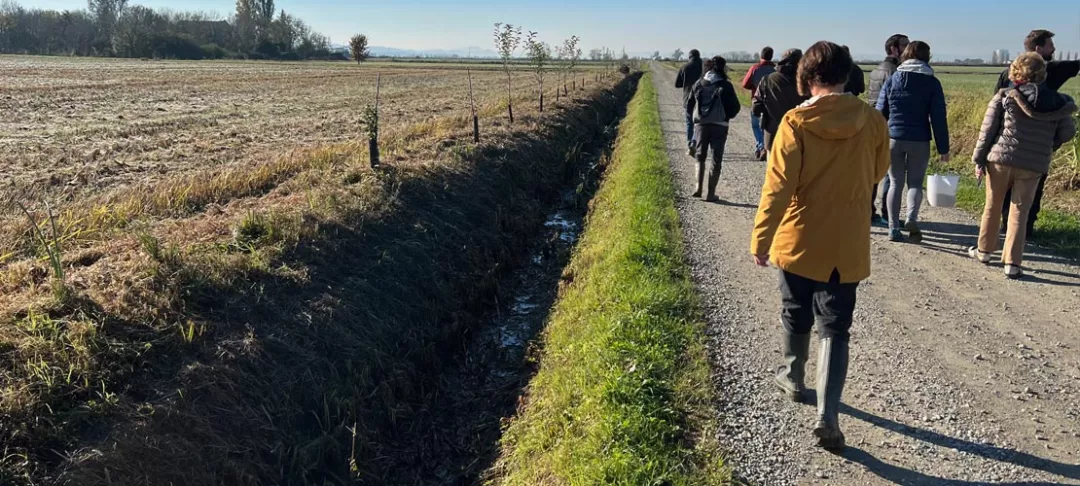Inspirational idea: Innovation & sustainability in the rice sector
Italian Operational Group Riso Amico+ is developing a value chain for rice production that respects the environment, the growers and the grain itself.

Ecosystem services in the rice production system provide many benefits, directly or indirectly, to the neighbouring community. Italian Operational Group Riso Amico+ is focusing on improving these services via the dissemination and adoption of innovative practices. Increasing farmers' scientific and technical knowledge about effective farm practices will reduce the environmental impact of crops, improve biodiversity, the quality of the final product and the economic situation for the growers.
Riso Amico+ is led by the University of Turin and involves public authorities, a management body of protected areas, a service company and ten farms located in the Piedmontese rice area. The project has set up demonstration sites on these ten farms to facilitate the dissemination of knowledge about resource-efficient and environmentally sustainable practices. Each farm has adopted one or more specific agronomic or naturalistic measure. They have also introduced practices that can guarantee the protection, restoration and maintenance of areas of high natural value. A key objective is to enhance the quality of the final product, with a particular focus on contaminants. “The farmers involved have found that sustainability is key to remaining on the market in the long term,” explains the project coordinator, Francesco Vidotto.
The demonstration sites show the agricultural practices adopted by the farmers in order to provide useful information to other rice growers and to all people involved in the rice value chain. Examples of the practices are agroforestry, non-chemical strategies for weed management and the application of precision farming for weed management and fertilisation. “The implementation is built on a bottom-up basis, placing the farm at the centre of the decision-making process and supporting the rice farmer in the operational choices to improve the production process,” explains Francesco Vidotto.
The project approach to sustainability is based on the concept of ‘ecosystems services’ given by the rice sector, which can be grouped into categories: ‘supply services’ - the production of food, fibres and fuel; ‘cultural services’ related to nature, landscape and recreational aspects; ‘support’ and ‘regulation services’ represent benefits deriving from environmental improvements (air, soil, water, flora and fauna).
The OG produced a list of good agri-environmental practices and sustainable rice production guidelines, which were shared with participating farms.
The partners are currently in the process of developing a web platform in which farmers can carry out the assessment of their farms’ environmental performance and showcase it to the public. Training and advice have been provided to the farmers involved in order to increase technical knowledge and develop innovative business techniques to achieve the objectives of reducing environmental impact, conserving and increasing biodiversity and increasing grain quality. “The topics of these training activities were agreed with the rice growers who expressed the need to explore some topics such as the post-harvest conservation and storage,” explains Francesco Vidotto.
“The exchange of experience between everyone involved will also lead to the creation of a network for more eco-sustainable and innovative rice production, overcoming the doubts and aversions that still exist in the rice farming community,” adds Francesco Vidotto. The application of the various techniques is being demonstrated on the farm sites, with many visits organised.
From the outcomes of the project, the partners are now creating a set of specifications for the production and management of rice farms, including a range of performance indicators. These indicators help the rice growers to choose the best practices to be adopted and the most suitable and sustainable production process for their farms. Moreover, by showcasing the indicators using the project's website, consumers will be able to better perceive the level of environmental impact of the farms and the consequent added value of their products.
Contact information
- Francesco Vidotto - francesco.vidotto@unito.it